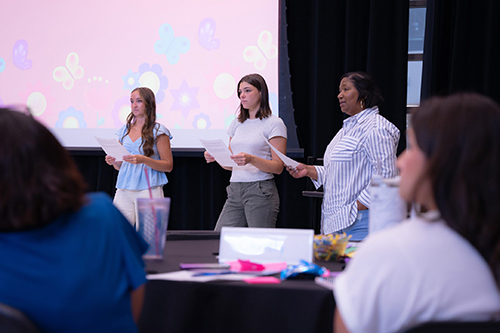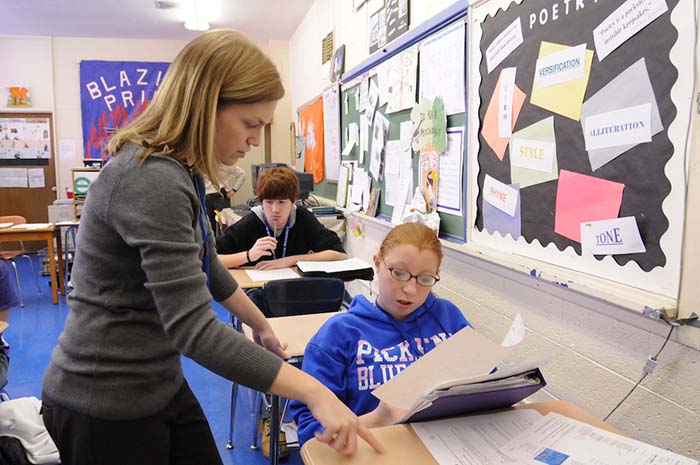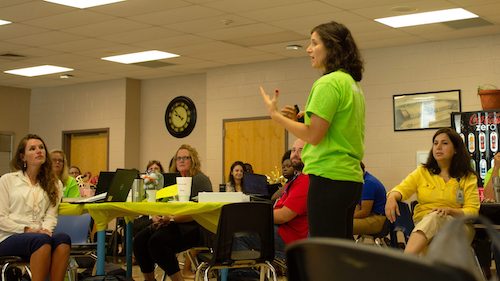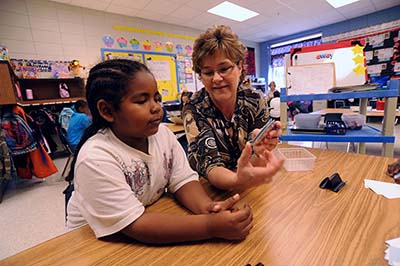-
Academics
- Academics Overview
-
Undergraduate
- Undergraduate Overview
- Agricultural Education
- Early Childhood Education, B.A.
- Elementary Education, B.A.
- Middle Level Education, B.S.
- Mathematics Teaching, B.S.
- Modern Languages Education, B.A.
- Special Education, B.A.
- Secondary Education, B.A.
- Science Teaching, B.S./B.A.
- Athletic Leadership Minor
- Human Capital Education and Development
-
Master's and Specialist Programs
- Master's and Specialist Programs Overview
- Athletic Leadership (Online)
- Counselor Education
- Educational Leadership
- Human Resource Development
- Learning Sciences
- Literacy (Online)
- Middle Level Education, MAT
- Modern Languages, MAT
- Secondary Education, MAT
- Special Education (Online)
- Student Affairs
- Teaching and Learning (Online)
- Teaching and Learning, Ed.S.
- Doctoral Programs
- Certificates | Endorsements | Licensure
- Expressway to Tiger Town
- Bachelor's To Master's | Teacher Residency
- Teaching Fellows
- Research
- Programs
- Students
- About
Major Funded Projects
PARTNERS Project (Providing Apprenticeships through Residency Teams for Novice Educator Retention and Student achievement)

This $5.99 million award from the U.S. Department of Education’s EIR program is recruiting diverse educators from various teacher preparation programs (traditional education graduates, alternative certification, preservice) in partnership with three SC HBCUs to teach in two high-need elementary schools in North Charleston by offering high-retention pathways.
Building Capacity for Early Multilingual Learners: Bridging Literacy and ESOL

Faculty are using a second $2.3 million award from the U.S. Department of Education for early learning teachers, recruited from Clemson’s statewide Early Literacy Center, to participate in professional development that improves instruction for English learners through CoE’s master’s in literacy with a focus on English for Speakers of Other Languages (ESOL).
Noyce Track 3 Building Leadership Among Science Teachers (BLAST) Program: Designing, Developing, and Implementing a Science Teacher Leadership Academy

A team of researchers is using a $2.8 million award from the National Science Foundation (NSF) over six years to further develop existing science teachers in rural schools.
Community Collaboration for Counselors: Increasing School-Based Mental Health Support

Clemson University faculty members are using a $5.8 million award from the U.S. Department of Education over five years to identify and educate current Greenville County Schools employees who seek to become school counselors. The work is poised to make a positive impact on the ratio of students to school counselors in the district and will allow current teachers and other employees in the district to continue working while pursuing the opportunity.
Behavior Alliance of South Carolina (BASC)

Researchers from Clemson University and the University of South Carolina are using a $4.6 million award from the South Carolina Department of Education Office of Special Education Services to develop the Behavior Alliance of South Carolina, which works directly with the state to help districts and schools across South Carolina build capacity for supporting students with social, emotional and behavioral needs.
CAREER: VECTORS in Engineering Valuing Education and Career Transition Opportunities Raising Student Success

This $600,000 NSF CAREER project uses a mixed method study to create new knowledge to more broadly increase engineering transfer numbers and preparedness through investigating the geographic and cultural assets of transfer intending two-year college students. The project also integrates research findings into digital educational interventions aimed at improving transfer student capital and to test the efficacy of those interventions.
English Learner Instruction: Building Capacity Through Design

Faculty are using a $2.1 million award from the U.S. Department of Education to research the best approach for teachers working with English learners. The five-year project will see researchers working with school districts in the South Carolina Midlands to discover effective approaches that K-12 educators studying literacy and English for Speakers of Other Languages (ESOL) can use to improve their teaching practices, student outcomes and parent/caregiver involvement in student learning.
Early Literacy Center

The Early Literacy Center provides initial and ongoing professional learning for reading interventionists and primary-grade teachers in the area of early literacy assessment and instructional strategies.
